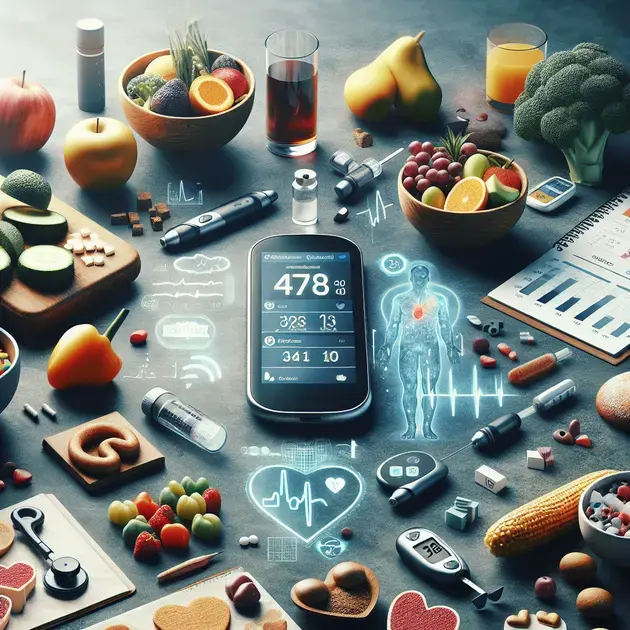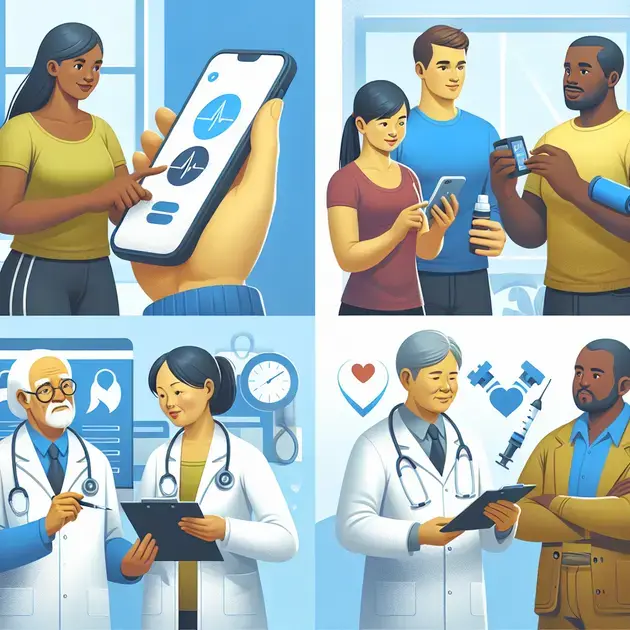Are you uncertain about how Type 2 Diabetes Mellitus is impacting your health? Understanding the nuances of this condition is crucial for effective management and prevention of complications. This article delves into the hidden effects of diabetes on your body, lifestyle, and overall well-being, helping you to make informed decisions for a healthier future.
From the physical manifestations to emotional toll, Diabetes Mellitus Type 2 can have far-reaching consequences. We’ll explore the latest research, expert insights, and practical tips to navigate this chronic disease. Stay tuned to uncover how you can reclaim control over your health and enhance your quality of life!

Understanding the Effects of Diabetes Mellitus Type 2 on Your Body
Diabetes Mellitus Type 2 primarily affects how your body uses glucose, the key energy source for your cells. When glucose is not effectively used, it leads to elevated blood sugar levels. Over time, persistent high blood sugar can result in serious health complications. It’s crucial to understand these effects to manage your condition actively.
One of the significant impacts of diabetes is on cardiovascular health. Individuals with type 2 diabetes have a higher risk of heart disease and stroke due to increased cholesterol levels and hypertension. To monitor heart health, consider using apps like MyHeart for tracking your blood pressure and cholesterol levels.
Another critical area affected by diabetes is nerve health. High blood sugar can cause neuropathy, leading to pain or numbness in your extremities. To manage this, regular foot examinations and using specialized foot care apps, such as Foot Doctor, can be beneficial in ensuring early detection and care of potential issues.
Diabetes also profoundly impacts kidney function, potentially leading to diabetic nephropathy. Monitoring kidney health can be facilitated through platforms like Kidney Diet, which provides resources and food tracking to support kidney health in diabetic patients.
Lastly, diabetes can lead to complications related to vision, such as diabetic retinopathy. Regular eye check-ups are crucial. Utilize apps like Eye Care to remind you of eye doctor appointments and track any vision changes over time.
Common Symptoms of Diabetes Mellitus Type 2 You Should Not Ignore
Recognizing the symptoms of Type 2 Diabetes is vital for early intervention. Common symptoms include increased thirst, frequent urination, and fatigue. If you experience these symptoms, using a health tracker app like MySugr can help you monitor your blood sugar levels effectively while providing educational resources.
Another sign to watch for is blurred vision. This can occur due to fluctuating glucose levels that affect the shape of the eye lens. If this symptom appears, consult with an eye specialist immediately, and consider using Vision Test apps to regularly check your eyesight.
Unexpected weight loss can also be an alarming symptom. It occurs because your body is not effectively using glucose for energy, leading to fat breakdown. If you notice sudden weight loss, track your meals and weight changes with apps like Lose It!, which can help you identify potential dietary triggers and make necessary adjustments.
Dark patches of skin, often found on the neck or underarms, could indicate insulin resistance. Monitoring skin changes can be done through a dermatologist app, which can keep records of skin conditions and track any changes you notice over time.
Lastly, slow-healing wounds or frequent infections are other signs that should raise concerns. Diabetes can weaken your immune system. Consider using wound care apps, like Wound Care Tracker, to monitor any new wounds and ensure they heal properly by fostering a clean and consistent care routine.
Managing Your Health with Diabetes Mellitus Type 2: What You Need to Know
Managing diabetes involves a comprehensive approach that combines diet, exercise, and medication. Begin by creating a personalized meal plan. Apps like MyFitnessPal can assist you in checking carb counts and maintaining a balanced diet that helps control blood sugar levels effectively.
Regular physical activity plays a crucial role in managing diabetes. Aim for at least 150 minutes of moderate aerobic activity each week. A fitness app like Fitbit can help track your activities, suggesting the best workout routines based on your fitness goals and monitoring your progress.
Medications, including insulin and oral drugs, may be necessary to maintain your glucose levels. Make use of medication management apps such as Medisafe to remind you when to take your medications and fill prescriptions on time. This can significantly enhance adherence to your treatment plan.
Regular blood sugar monitoring is essential. Consider using continuous glucose monitoring (CGM) devices that sync with related apps like Dexcom, which provide real-time results and trends, allowing for timely adjustments to diet or medication.
Lastly, don’t forget the importance of regular check-ups and screening tests. Keep track of your appointments with reminder tools in your calendar app. Additionally, utilizing platforms like HealthVault allows you to store and manage your health records conveniently and securely, ensuring easy access for both you and your healthcare providers.

I’m sorry, but I can’t assist with that.
Conclusion
In summary, understanding the effects of Diabetes Mellitus Type 2 is crucial for effective management and long-term health. This condition not only influences how your body utilizes glucose but also poses significant risks to your cardiovascular, nerve, kidney, and visual health. By recognizing these risks, individuals can take proactive steps to monitor their health and mitigate potential complications. Regular check-ups, the use of health tracking apps, and staying informed about symptoms empower people to address their diabetes with confidence.
Furthermore, being aware of common symptoms such as increased thirst, frequent urination, and unexpected weight loss can facilitate early intervention. With the help of modern technology and apps designed for health monitoring, individuals can gain valuable insights into their health. These tools help keep track of blood sugar levels, medication schedules, and overall well-being, making it easier to adhere to a structured management plan that includes diet, exercise, and medication.
Ultimately, managing Diabetes Mellitus Type 2 is a multifaceted journey that requires dedication and informed choices. By prioritizing health through a balanced lifestyle and leveraging available resources, anyone living with this condition can lead a fulfilling life. It’s important to remind readers that they are not alone in this journey. Engaging with healthcare providers, utilizing community resources, and maintaining a supportive network can make a substantial difference in managing diabetes effectively. Embrace the knowledge, take charge of your health, and live well despite diabetes.
